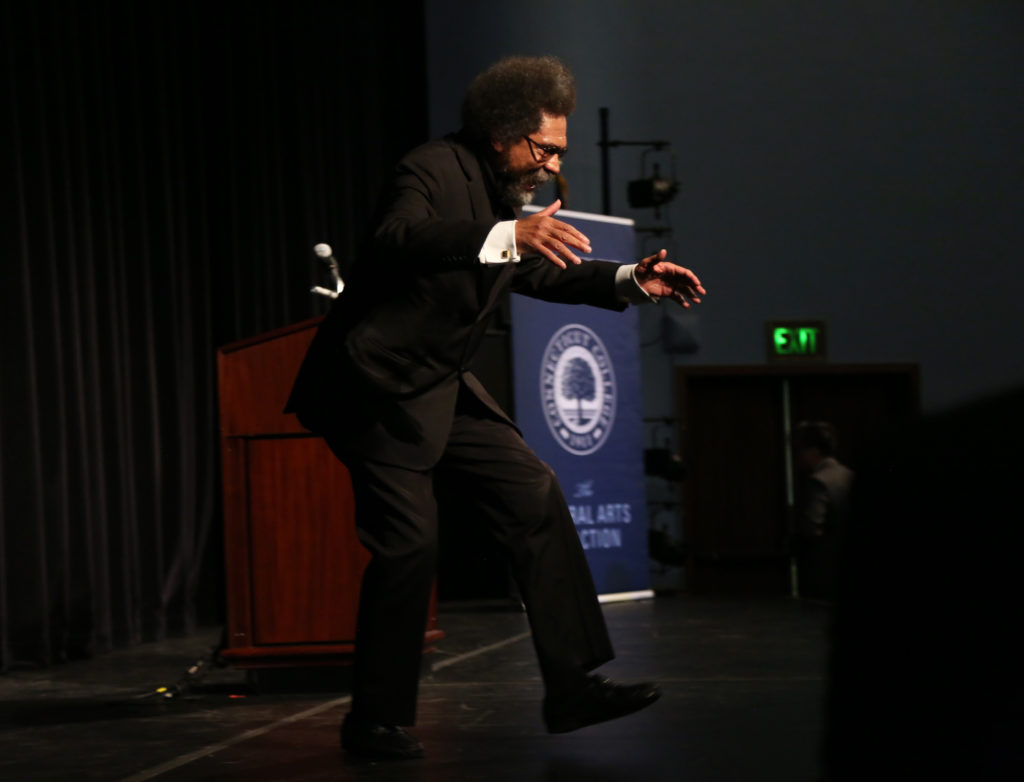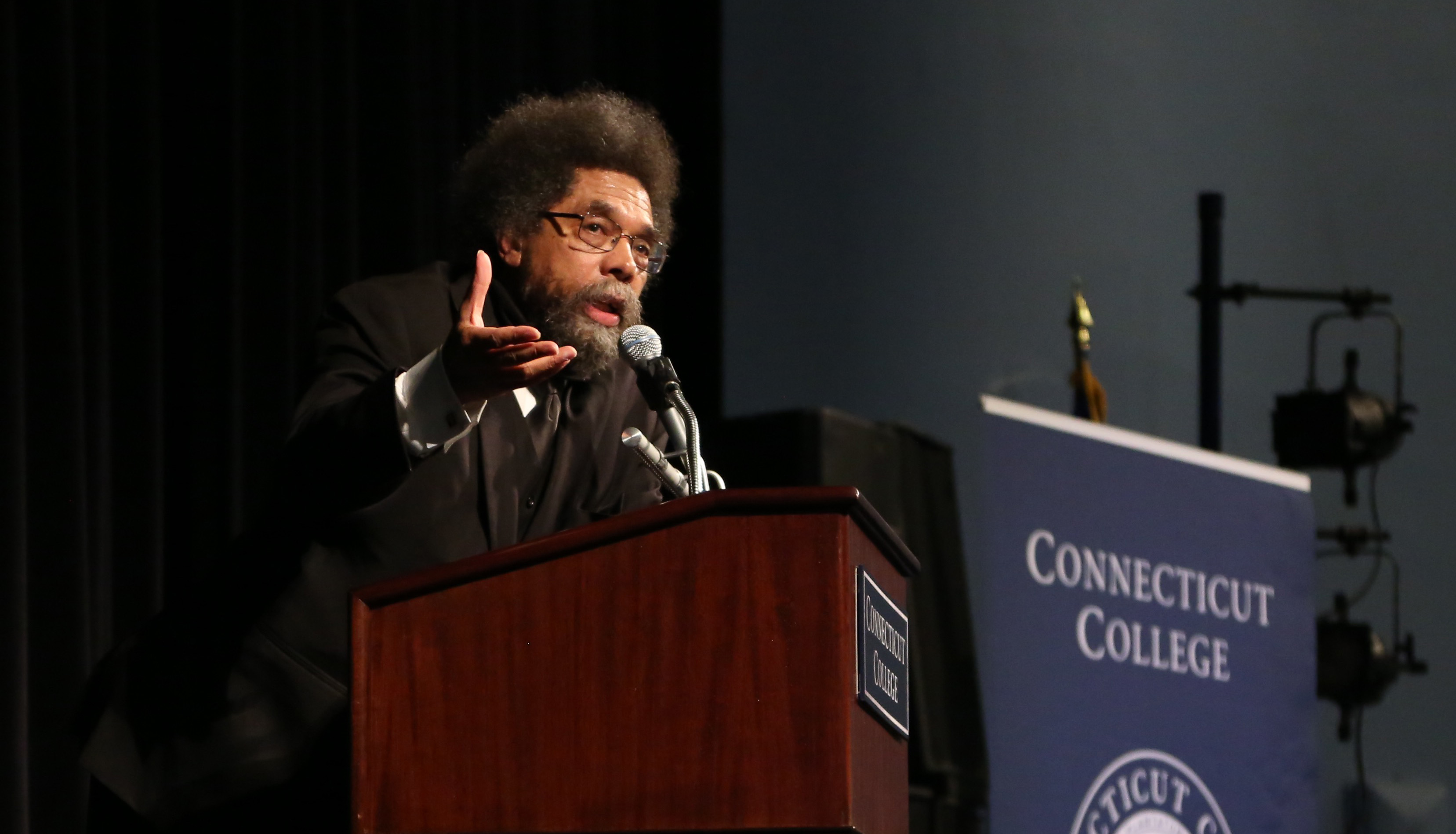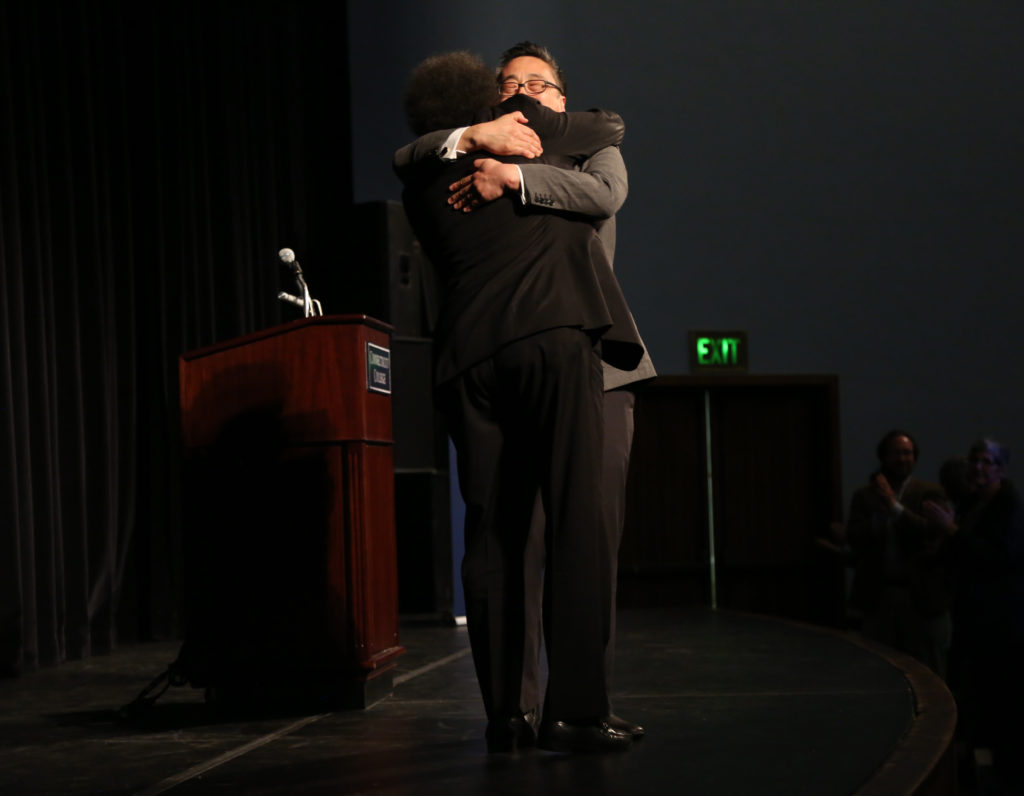“The complexity of the world is not something you can deny”, proclaimed the esteemed Dr. Cornel West as he electrified a Connecticut College audience this past Thursday. The talk commemorated the tenth anniversary of the Center for the Comparative Study for Race and Ethnicity (CCSRE).
A brief honoring was conducted for the Centers past members and founders. Special notice was made of the work of Professor Vincent Thompson, now retired, who spearheaded black and Africana studies at the College in the 80’s. The program also honored Frank Tuitt and other alums who had been a part of the 1980’s ‘Fanning Takeovers’, which first demanded for these fields to be prioritized in the curriculum.
Dr. West was introduced first by Professor Kim, who shared how genuinely he had been affected by the Doctor the first time he heard him speak. Bergeron followed suit by calling him a “preacher and a prophet”, and then continued to rattle off his accomplishments in what felt suspiciously similar to his Wikipedia page.
Her introduction was quickly reframed by West, who suggested instead that we acknowledge the mentors who shaped him. His respect for his heritage was reflected in the structure of the talk, which was outlined by four of the famous black thinker W.E.B. DuBois’ most pressing questions: How shall integrity face oppression? What shall honesty do in the face of deception? What shall decency do in the face of deception, and virtue in the face of brute force?
The outline was the only obvious structure to a speaking event that was quickly more performative than didactic. West spoke seemingly off the cuff for the next hour and a half, collecting an immense amount of human history, literature and philosophy in a rhetorical inquiry of contemporary America, a ‘violent nation’.
In one sense, the event was a tour-de-force for students who were wowed by the all-star cast of revolutionary thinkers with whom West was acquainted, including the artist formerly known as Prince, who passed away on April 21st.
But more significant was the way in which West recast our perception of many figures even popular culture, suggesting that although an artist like Beyoncé is a talented performer, more soulful artists like Nina Simone or Aretha Franklin exist “in another stratosphere”.
West’s cutting analysis was also impressive in its breadth, extending also to political figures such as GOP frontrunner Donald Trump and ‘brother Bernie’, as well as our current president. He praised the iconic senator from Vermont for his stance on educational reform, “he just wants to make sure people have access to deep education, not cheap market schooling”, calling democratic front-runner Hillary Clinton disappointingly ‘corporate’ by comparison.
Concerning Obama, it’s safe to say that West didn’t stick to the conventional script. Rather, West put forth that the presidential image of Obama was that of ‘the ultimate black professional’, a notion more symbolic than revolutionary when it comes to the well-being of minorities at large in the United States.
“If you do win, what are you going to do?”, West asked of Obama. “What are you going to do about all these young black folk getting shot? Not a single police officer has gone to jail”. Policy-wise, he also raised the issue of Obama’s drone wars, calling them a ‘crime against humanity’ and stressing the value of human life irrespective of nationhood or color.
At the talk’s end, many of the issue’s brought up by the doctor were made immediately relevant by a Q&A session. Some students used the opportunity to ask West to define the radical love so central to his philosophies. On a more controversial note, Senior Kevin Zevallos used the forum to ask how the student body at Connecticut College could hold its own administration accountable for diversifying the College. The question felt palpably directed towards administrators in the room.
West’s response ran counter-current to the anti-administration statement that Zevallos sought to make. West suggested that accountability is a continuous transaction between students and their institution. “We have to keep the pressure on them. That’s how it works. We have to be jazz-like”, he added with his typical flair.
West also pointed to the newly appointed John McKnight Jr., the newly appointed Dean of Institutional Equity and Inclusion, saying “he doesn’t look like he came here to be co-opted. He’s gonna do it like Duke Ellington did it”. West praised the school and the CCSRE for partaking in a ‘courageous quest’ for abstract ideas, such as beauty and knowledge.
Like with so many of the heavy topics broached in his talk, West, the self-proclaimed revolutionary Christian, left a packed Palmer audience surprisingly light-hearted with a sense of optimism founded in the undeniable soul of funk, justice and love. After attempting his answers to some of DuBois cosmic questions, West left his flock with the tough question: in a monetized world how will we, and can we, sustain our quest for integrity?











